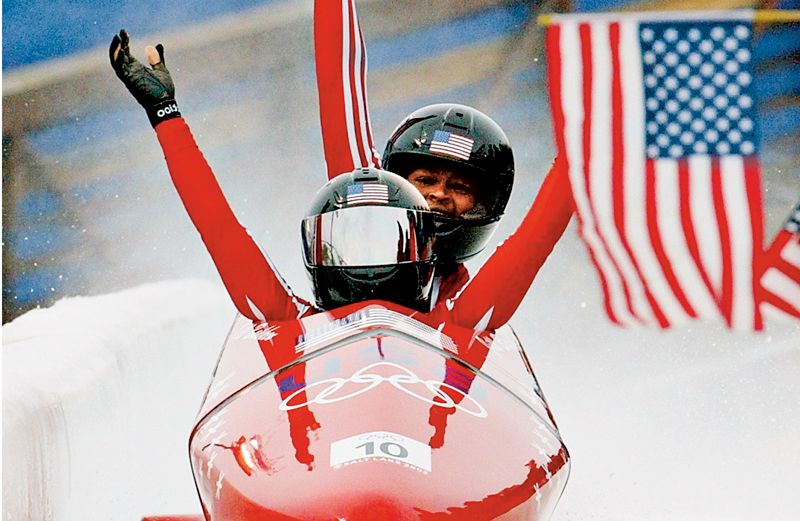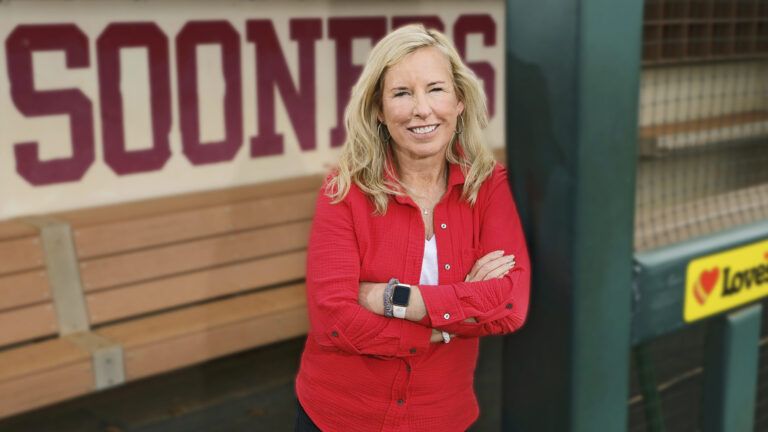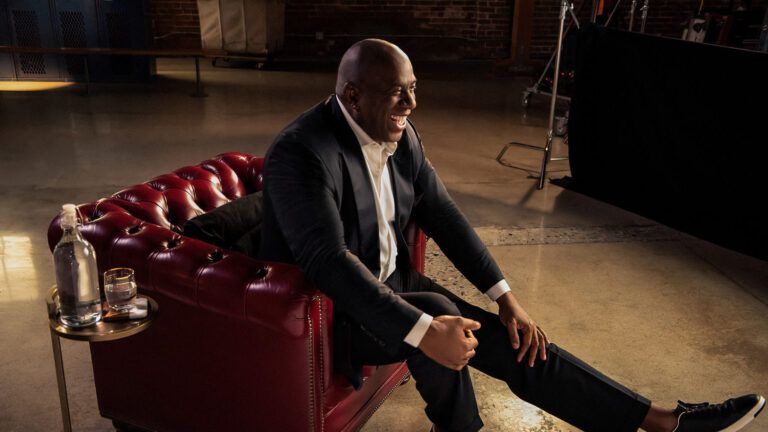The time had come. I’d trained for this moment since age nine. All along the race route fans jumped up and down, waving American flags, cheering.
I stood beside my bright red 2002 U.S. Olympic team bobsled. My heart pounded. Jill Bakken, my teammate, looked me straight in the eye. “Let’s do it,” she said. Jill tapped my fists with hers. Beneath us lay a mile-long, four-story-steep track of ice.
I adjusted my helmet and thought, Only God could explain the turn of events that has carried me here. Two years earlier I’d failed in my second attempt to make it as a long jumper on the U.S. Olympic track and field team. Making that team had been my all-consuming ambition.
Now, through a series of what seemed like miracles, I was representing my country at the Salt Lake City Winter Olympics in a sport I’d never even heard of two years ago.
I breathed deeply. We took our positions, Jill next to me on the starting block, near the rear of the sled. My job was to give us a supercharged running push start. “Back set,” I said, flexing my legs into position. This was it. Our shot at the gold.
“Front set,” said Jill. “Ready…Go!” I threw my body against the bobsled as hard as I could and grunted. I ran as fast as I could. We exploded out of the starting gate.
Seems like I’ve been running all my life. From the time I was little, I’d race the boys down the street outside our house in Birmingham, Alabama, and beat most of them.
But I didn’t know how fast I really was until third grade. That’s when Coach Thomas, of the local Marvel City Striders track team, came to my elementary school to time kids in the 50-yard dash–and to invite the fastest runners to join his squad.
He must have time-tested dozens of runners at our school that day. I was the fastest. That night he called my parents and asked if I could report to the Striders’ practice the next day.
“Who are you?” Coach Thomas asked. He seemed surprised to see me.
“Vonetta Jeffrey,” I said.
Coach Thomas looked me over. I was small for my age. Was he thinking that he’d made a mistake? “Okay. Let’s see you run again.” He put me against his best female sprinter. He blew his whistle and I leaped out of the blocks. I beat her. It seemed my feet barely touched the ground.
Coach Thomas took me aside. “You can be a great runner, Vonetta, maybe even the next Jackie Joyner-Kersee.”
I didn’t know then that Jackie was America’s greatest female track and field star. But I knew Coach Thomas had trained lots of local athletes who’d gone on to compete in college, even the pros.
“But it takes more than just running fast. It takes commitment. It takes believing in yourself and your potential,” he said.
Potential. I loved hearing that word.
Track became my life after that. Meets in the spring, practice all summer, cross country in the fall, more training in the winter. I grew strong and tall. I’m going to compete in the Olympics, I promised myself. I knew I had the potential.
One day when I was 11, Coach Thomas pulled me aside. “Vonetta, your legs are so powerful, you have such spring in your stride. I want you to try the long jump.” I fell in love with it. What an incredible feeling, taking off from the runway board, then soaring through the air. I’d never felt so free.
The long jump became my specialty. By high school I didn’t have time for much else. The night of my prom, I competed in the state championship track meet. Sprinting down the runway, I thought, Winning might get me a college scholarship, the next stop toward my Olympic dream.
I won an athletic scholarship to the University of Alabama at Birmingham. My goal was to compete in the 1996 Summer Games. By my senior year in 1996 I was a seven-time All-American.
At the time I was ranked among the top five female long jumpers in the country. “I feel like my time has come,” I confided to my boyfriend Johnny.
Then in May, two months before the Olympic Trials, I was running wind sprints in practice. Racing down the track, I felt something rip in my thigh. I’d torn my left hamstring, just about the worst thing that could happen to a track and field athlete. No way could I recover in time.
Still, I went to the Trials. “Who knows?” I said to Johnny. Johnny was a former track star turned coach, and my biggest fan. “Maybe I can pull off a miracle.”
When my turn came Johnny knew how tough that would be. But he also knew how determined I was to make the U.S. Team. I sprinted hard down the runway. Everything felt good. Maybe I can do it, I thought.
I hit the takeoff board and jumped as far as I could. Nothing. I finished 13th. Only the top three finishers qualified for the team.
I went off with Johnny. I didn’t want anyone else to see how devastated I was. I didn’t go to church much as a child, but since meeting Johnny I’d found faith. Now I turned to God. Why? I asked him. Why did this happen? I’ve worked my whole life for this goal!
Your time will come, a voice answered, sure and strong. Not a thought, a voice. I snapped to. Yes, I’d rededicate myself. The 2000 Olympics were four years away. I’d be 26, still young enough to compete. Okay, I decided. I’m not finished yet.
Johnny and I had talked about marrying and starting a family, but now I put everything outside of training on hold. “We’ll have to wait,” I said. I moved from Birmingham to Tuscaloosa, Alabama, to train during the week with my new coach.
I worked harder than ever. Johnny and I got married in 1999. We still planned to wait on kids till after the Games.
One morning I was out on the track taking practice jumps. I hit the board and soared high into the air. I came down and hit the sand off balance. My ankle rolled. It swelled almost immediately. I iced it for a while, then tried another jump.
Sprinting down the runway felt fine. But when I pushed off to jump, a wave of pain shot through me. I went to see my doctor. “You’ve torn a ligament,” he said. “You’re going to need surgery.”
No! I’d never get back in shape by the Trials in July. This time I didn’t ask why. Instead, in utter desperation, I prayed for understanding, for acceptance. Everything I’d worked for was gone. All that potential–all for nothing.
Your time will come, the same voice assured me. But how? No way could I hang on four more years, till the 2004 Games. I’d be 30, over the hill. Johnny and I were ready to start a family.
We flew out to Sacramento, California, for the Trials. They went about as I’d expected. I finished 12th. “Seventeen years. That’s how long I’ve chased my dream,” I told Johnny, tears filling my eyes. “And now it’s over.”
“Maybe not,” he said. He told me about a flyer he’d seen at our hotel–a special invitation for athletes registered for the Trials. “A driver for one of the two-women Olympic bobsled teams is looking for a new partner for the 2002 Winter Games,” Johnny said. “I think you should try out.”
I just laughed. I didn’t even know what a bobsled looked like. Winter Games? I was used to running in hot weather with as little clothing as possible. I grew up down south. We barely had winter. “Really, I’m serious,” Johnny said. “The main requirements are speed and strength. You’ve got those.”
“Forget it. It’s crazy,” I said.
Johnny stared at me. “You want to compete in the Olympics or not?” Then he said, “I’ll try out for the men’s bobsled team. We can be the first husband-and-wife team to compete in the Winter Olympics.”
I had to laugh. Johnny hadn’t competed in three years, and he was no Winter Olympian either. But he insisted. Finally I agreed to try out with him. But I wasn’t serious.
I showed up with my long-jump spikes. I was one of a dozen athletes there. I had no idea what to expect. As I laced up my spikes, I had second thoughts. What was I getting into? How fast does a bobsled go? Was it dangerous?
I knew Johnny was watching. He’d already tried out. He’d pulled a hamstring and hadn’t made the team. I spotted him on the sidelines, giving me a thumbs-up and an encouraging smile. Go for it, I told myself.
I blasted off the starting line. For the rest of the tryout I never stopped. Johnny kept cheering me. I breezed through the competition. A month later Bonny called. “I want you to go to Germany with me to train.”
Johnny sat me down. “This is going to be tough on us,” he said. “It means putting off starting our family. It means time apart from each other. But this is what you’ve prayed for all your life. This is your chance–your chance to make the Olympics.”
Over the next two years I trained like never before. Shortly before the Trials, Bonny and I had a falling out and Jill Bakken asked me to be her brake person. We went to the Trials as total underdogs. And we’d made it.
Now here we were, poised at the starting gate in Salt Lake City for the 2002 Winter Games. “Ready…Go!” We pushed off. Jill jumped into the sled. I kept pushing, building up speed, driving my legs, then jumped into the sled just as we hit the first steep incline.
It was a record start time–5.31 seconds–and our ride just built from there. There were 15 turns and we navigated each of them perfectly, racing at an average speed of 82.3 mph. We crossed the finish line in 48.81 seconds, a new track mark.
There are two heats in Olympic bobsled, and our second one later that night was nearly as fast. I looked at our time: 48.95 seconds.
Jill and I got out of our sled after that second heat. All around us, people were cheering. And then suddenly, I was in Johnny’s arms. “You did it, Baby!” he yelled. Our combined time–1:37.76–was good enough for the gold.
You know something? Potential is a funny thing. We all have it. But we can never be sure exactly how God might decide to use it. Look at me. All my life I wanted to win gold. And I did. Just not in a way I could have imagined.
More stories from Winter Olympians!






